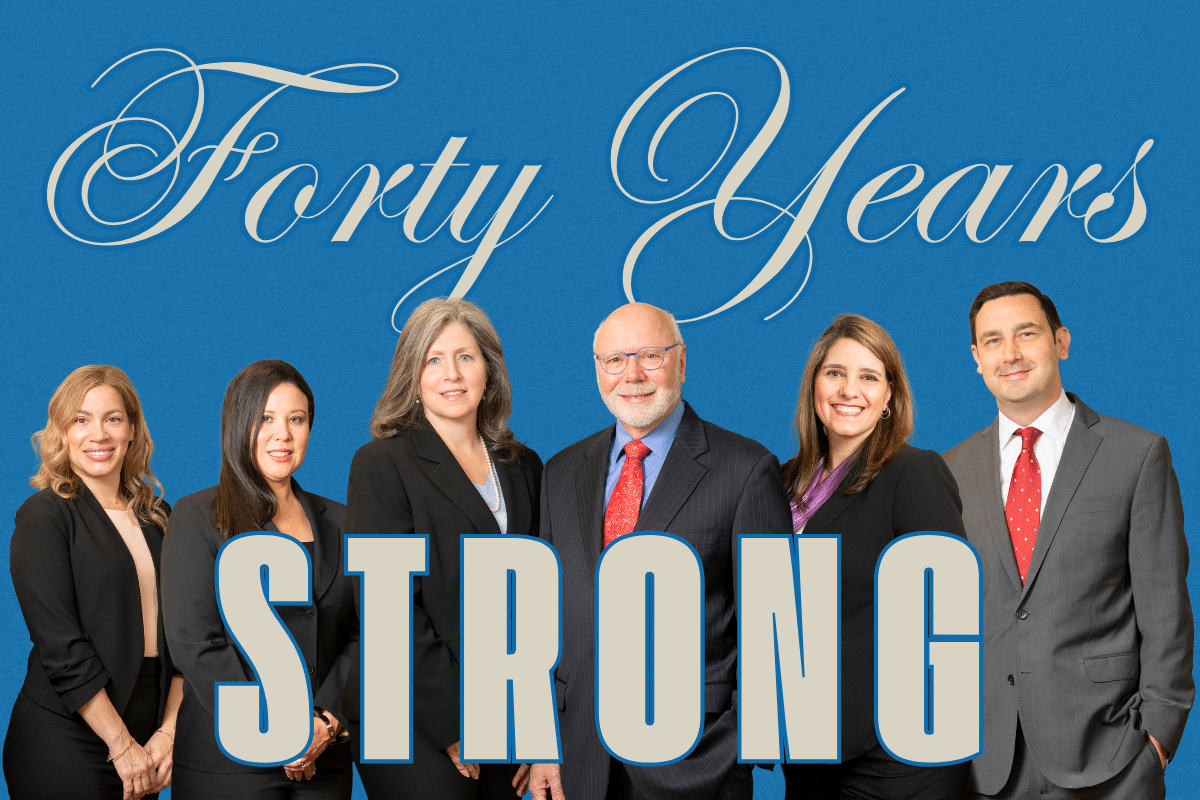On October 1st, 2025, Russo Law Group will mark a significant milestone: 40 years of…

This post will provide you with tips for communication, maintaining a stable environment, and taking care of yourself through this process.
Fostering Connection Through Communication
Communication is often one of the first and most difficult things to change when a loved one has Alzheimer’s. As the disease progresses, their ability to process information and express themselves will decline. Adapting your communication style can reduce frustration for both of you and help maintain your bond.
Use Simple Language: Keep your sentences short and your questions simple. Ask one question at a time and phrase it in a way that allows for a “yes” or “no” answer. Instead of asking, “What would you like for dinner tonight, and do you want to eat in the kitchen or the dining room?” try asking, “Would you like chicken for dinner?” Once you have an answer, you can move on to the next question.
Be Patient and Listen: Allow your loved one ample time to respond. They may struggle to find the right words or process what you’ve said. Avoid interrupting or trying to finish their sentences, as this can cause agitation. Listen not just to their words but also to their body language and tone, which can convey feelings they can no longer express verbally.
Use Non-Verbal Cues: A warm smile, a gentle touch on the arm, or making eye contact can communicate reassurance and affection more powerfully than words. Your positive and calm presence can help your relative feel safe and loved, even when they are confused or anxious.
Creating a Stable and Safe Environment
Consistency and routine are comforting for individuals with Alzheimer’s. A predictable daily schedule minimizes surprises and reduces anxiety.
Maintain a Daily Routine: Try to schedule meals, appointments, and activities at the same time each day. A familiar routine helps your loved one know what to expect. A large calendar or whiteboard can be a helpful visual aid to outline the day’s plan, providing a sense of structure and control.
Simplify Their Surroundings: A calm and uncluttered environment can help reduce confusion and agitation. Remove excess furniture, throw rugs, and other potential hazards to prevent falls. Ensure rooms are well-lit and that important items, like the telephone or their glasses, are kept in a consistent, easy-to-find place.
Encourage Safe, Enjoyable Activities: Engage your relative in activities they enjoy and can still manage. Listening to music, looking through old photo albums, gardening, or taking a simple walk can be wonderful ways to connect. Focus on the enjoyment of the activity itself, not on the outcome.
The Importance of Self-Care for Caregivers
Caring for someone with Alzheimer’s is a demanding role. It’s essential to recognize that your well-being is just as important. Neglecting your own needs can lead to burnout, making it impossible to provide effective care.
Seek Support: You are not alone. Connecting with others who understand what you are going through can be incredibly beneficial. Support groups, whether in-person or online, provide a safe space to share experiences, exchange tips, and receive emotional encouragement. Friends, family, and professional counselors can also be vital sources of support.
Take Regular Breaks: Caring for a loved one with Alzheimer’s can feel like a 24/7 job. It’s crucial to schedule regular breaks to rest and recharge. Arrange for respite care, ask another family member to step in, or hire a professional caregiver for a few hours. Use this time to do something you enjoy, whether it’s reading a book, going for a walk, or having coffee with a friend.
Plan for the Future: Thinking about the future can be overwhelming, but it is a necessary step. Legal and financial planning can provide peace of mind and ensure your loved one’s wishes are honored. As experts in elder law, Russo Law Group can help you navigate documents like powers of attorney, healthcare proxies, and long-term care plans, easing the burden of future decisions.
A Final Thought
Dealing with a relative’s Alzheimer’s diagnosis is a journey of adaptation and love. By focusing on compassionate communication, creating a stable environment, and prioritizing your own well-being, you can navigate this path with grace. Remember to be kind to yourself and your loved one as you face these challenges together.
If you need guidance on legal planning for elder care, please contact Russo Law Group. We are here to help you and your family plan for the future with confidence and care.
If you would like to speak with an experienced elder law attorney regarding your situation or have questions about something you have read, please do not hesitate to contact our office at 1 (800) 680-1717. We look forward to the opportunity to work with you.
Disclaimer: The information provided above is for general informational purposes only and is not legal advice.




Comments (0)